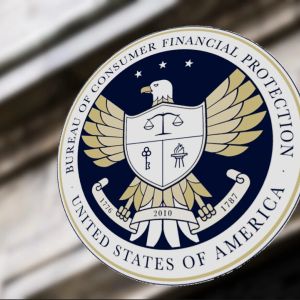The U.S. Consumer Financial Protection Bureau (CFPB) has begun the process of rewriting its “open banking” regulations. As expected, the policy debate, which has been ongoing for a while and has banks and fintech companies at loggerheads, isn’t ending anytime soon, at least, not until the overhaul is complete. The decision to start a do-over of the regulation also came as a surprise to many who were aware of the matter before July 29, as the regulator and the Trump administration were initially seeking to overturn the Biden-era rules. That move would have favored the bankers, who are against sharing consumer data with other financial institutions such as fintechs. The current regulations adopted from the Biden era require banks to give customers access to their own financial records so that the data can be shared with other providers at the consumer’s discretion. Supporters of the regulation argue that the rules would make switching banks seamless and also foster healthy competition in mortgages, deposits, and payments. Since banks have been against the move, citing the need to protect consumer data, some figures have called their actions an attempt to lock out competitors from consumers’ financial information. CFPB reverses course under political pressure Earlier this year, the Trump administration told a federal judge it backed the banking industry’s legal efforts to strike down the rules. That position shifted in late July . Citing unspecified “recent events in the marketplace,” administration lawyers informed the court they would withdraw support for the litigation and instead pursue a new version of the regulations. The turnabout came shortly after JPMorgan Chase disclosed plans to charge fintech firms potentially significant fees for accessing customer data, despite the Biden-era rule’s prohibition on such charges. The announcement provoked an outcry on social media, with Tyler Winklevoss and Trump Jr. accusing the bank of anticompetitive behavior. JPMorgan chief Jamie Dimon defended the policy, insisting that “securely sharing customer data is costly.” Industry divided over risks and opportunities Fintech groups and digital payment innovators have pressed the administration to maintain strong portability rights, arguing that consumers should be able to control their own financial records without hidden fees or restrictive contracts. In contrast, banks and credit unions warn that the regulatory burden could be severe. America’s Credit Unions, a major trade body, said the Biden-era rule would “put consumers’ sensitive financial data at risk and create costly compliance obligations for smaller institutions ill-equipped to manage them.” The CFPB’s decision to relaunch the rulemaking process, rather than simply amend the existing regulation, opens the door for both camps to re-litigate their arguments. Agency uncertainty and next steps The rebooted rulemaking comes at a turbulent time for the CFPB itself. A recent federal appeals court ruling cleared the way for the Trump administration to restructure the agency and potentially lay off large numbers of staff, further clouding the future of consumer finance regulation. So far, the CFPB has not set a timeline for the new rule’s completion. Given the complexity of the issues and the potential for further lawsuits, analysts expect the process to stretch well into 2026. Until then, the battle lines between Wall Street and Silicon Valley remain firmly drawn, with consumers’ financial data at the heart of the fight. Sign up to Bybit and start trading with $30,050 in welcome gifts















